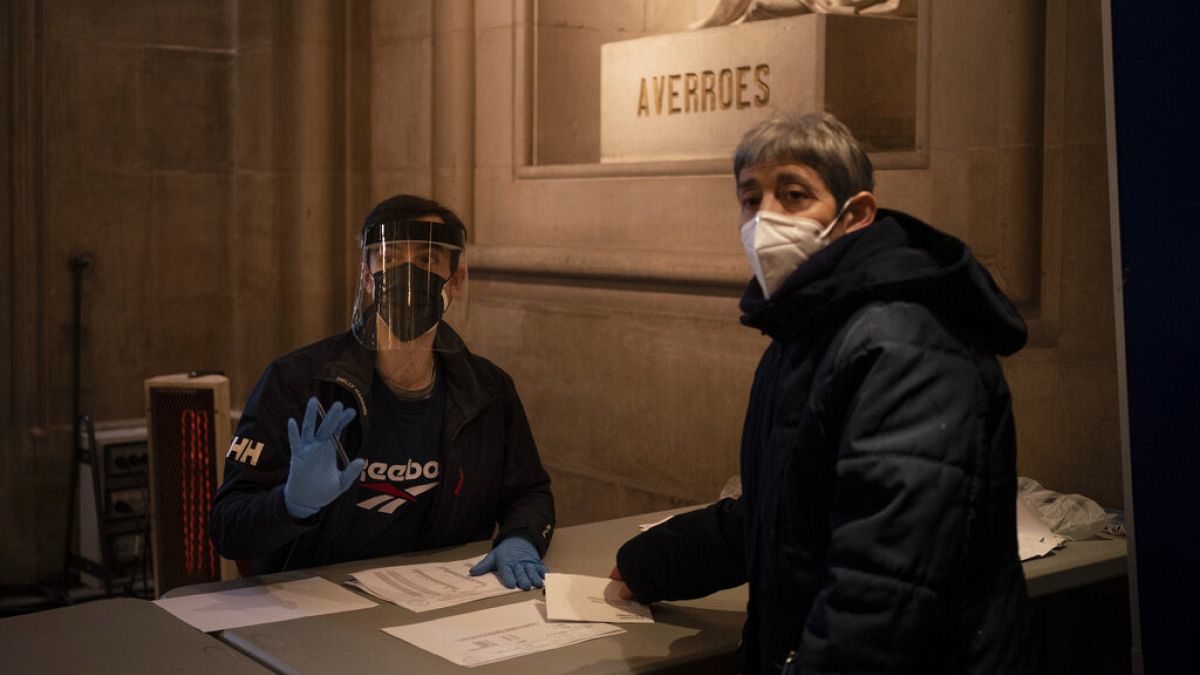Despite health concerns, voting went off without a hitch at the vast majority of polling stations, according to authorities.
The strength of the separatist movement in Spain's northeastern Catalonia was tested Sunday as 5.3 million voters were called to take part in a regional election.
It's being held under tight restrictions to reduce the spread of the coronavirus.
Madrid hopes the vote will unseat the region's ruling separatists. More than three years ago they failed to break away from Spain by holding an illegal referendum.
A high level of abstentions was anticipated as the country battles a third wave of the pandemic.
But despite many people requesting to be relieved from the duty of working the polls, voting went off without a hitch at the vast majority of polling stations, according to authorities.
Preliminary results are expected around 10pm but a record number of mail-in votes may mean the full results will take longer than usual.
Any potential future regional government will likely hinge on deal-making between parties that could take days or longer to conclude.
Tight safety restrictions
Regional authorities ramped up restrictions to slow soaring case numbers after the Christmas holidays.
And in a highly-controversial move, people with the virus as well as those in quarantine will have the right to cast their ballots in person in the last hour before voting closes at 1900 GMT.
Of the 82,000 people who were asked to help staff polling stations on the day, nearly 31.000 asked to be recused, despite pledges they will receive full protective suits.
The regional government insists it has put in place all the necessary health and security measures, laying on antigen tests for voting staff, providing spacious and well-ventilated polling stations and measures to ensure social distancing.
Voters must wear face masks, use the hand disinfectant provided at polling stations, and remain at least 1.5 metres apart while queuing.
A polling station "is really much safer than going in the metro or into an office to work," insisted Ismael Pena Lopez, the regional government's top election official.
Separatist divisions
Beyond the ongoing health crisis, the vote has been overshadowed by a bitter split between the separatist factions following the failed independence bid of 2017 that sparked Spain's worst political crisis in decades.
The Catalan government has been dominated by separatists since 2015 and Spain's Socialist Prime Minister Pedro Sanchez is hoping that this election, the fifth in a decade, could end their rule.
Although he himself came to power in 2018 thanks in part to support from Catalan separatists, Sanchez has not hidden his desire to remove them from power, a difficult goal to achieve.
Even today, his minority government still relies on them to pass legislation.
Former health minister Salvador Illa is spearheading the Socialists' bid to unseat the separatists in Sunday's election, with polls putting his PSC (Socialist Party of Catalonia) neck-and-neck with the pro-independence parties.
It's also possible that the election might need to be held again.
Polls suggest none of the parties will win an outright majority of 68 in the 135-seat regional parliament, meaning the eventual outcome will depend on deal-making.
Forming a government "will probably be quite challenging" and prospects of a repeat election "should not be discarded," said Antonio Barroso, an analyst at political consultancy Teneo.
Although the separatist parties remain deeply divided, polls suggest the hardline JxC -- "Together for Catalonia" -- and the more moderate ERC could once again cobble together a majority to rule anew.
The main question is which of the two will come out stronger.
